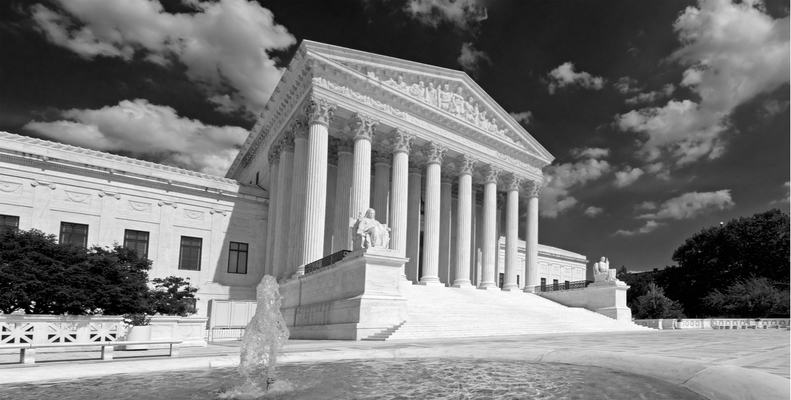Bad Supreme Court decisions have expanded the federal government's power far beyond what the founders originally intended. In a recent Facebook post, Convention of States co-founder Michael Farris explains how a 1935 Supreme Court decision misinterpreted the Constitution's Commerce Clause and massively expanded the jurisdiction of federal power.
The case is known as the "sick chicken case" -- officially known as Schechter Poultry Corp. v. United States.
Congress passed a law that regulated the sale and movement of live poultry. One of its provisions limited the ability of customers to check for sick chickens—thus the nickname of the case. But the main provision was a federal minimum wage law that included the workers in the poultry business.
This law was based on a claim that Congress could pass this law under the authority of the Commerce Clause [which allows the federal government to regulate "interstate commerce."]
Schechter Poultry was not an interstate shipper of chickens. Its operation was entirely within the state of New York.
The Court ruled that the law was unconstitutional—a result I entirely support. Yet, I believe that in the long run this decision is one of the worst ever.
Why?
In the process of explaining their holding, the majority said that Congress can regulate interstate commerce and those things that directly affect interstate commerce.
It is the “direct effects” portion that has been so problematic.
Over time, the small little loophole created by the direct effects test has expanded Congressional authority over our lives in ways that are simply unrecognizable in light of the original meaning of the Constitution.
Congress regulates an enormous amount of the business in this country—even though very little of its actually constitutes “commerce”.
In 1787, interstate and international commerce meant trade—that is, shipping goods across state or international boundaries.
In simple terms the Commerce Clause was intended to give authority to regulate shipping—trains, boats, planes, trucks, but not agriculture, banking, manufacturing, mining or anything else besides shipping.
States were and continue to be able to regulate agriculture, banking, etc., and the basic rule of thumb is that the states cannot regulate interstate commerce.
So, if states can regulate it, Congress can’t.
The net result of this is that most businesses face a dizzying array of both state and federal regulations.
If we were following the original meaning of the Constitution—our prosperity would skyrocket. And common sense regulations from the states would still provide necessary protections. And smarter states would be even more prosperous.
Federal overreach into the private economy costs trillions of dollars—all because the Court uttered the phrase “direct effects.”
The Supreme Court is never going to reverse these bad decisions, and Congress is never going to propose constitutional amendments that limit their power. The only way to shrink Washington's power is with constitutional amendments proposed at a Convention of States.
A Convention of States is called under Article V of the Constitution and has the power to propose amendments that limit the size and scope of the federal government, impose fiscal restraints on Congress, and mandate term limits for federal officials.
Millions have joined the movement, and 15 states are on board. Sign the petition below to get involved and help put the federal government back in its constitutional box!


